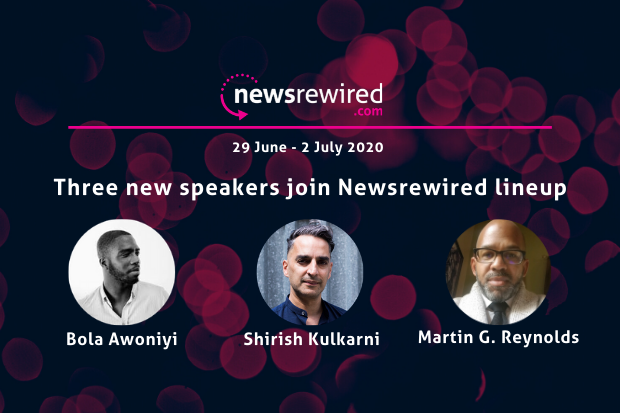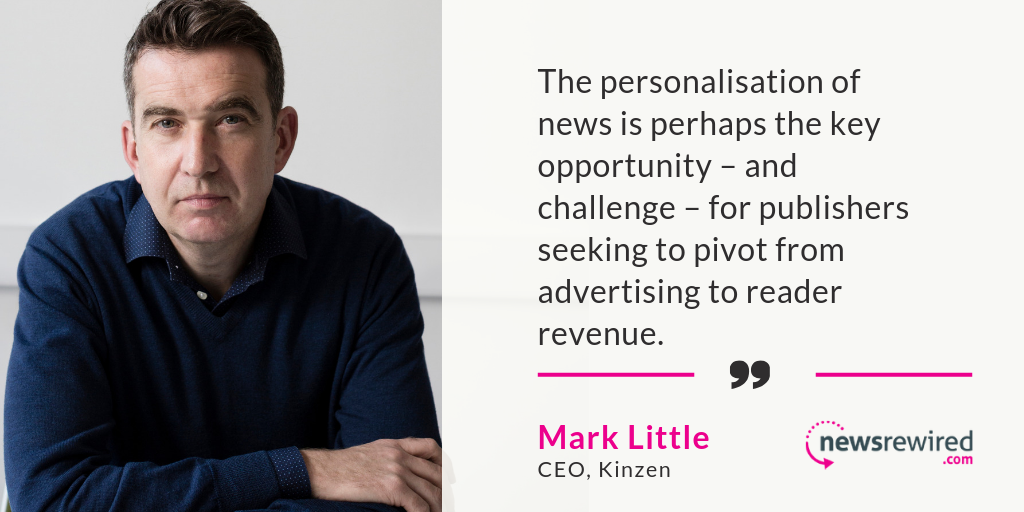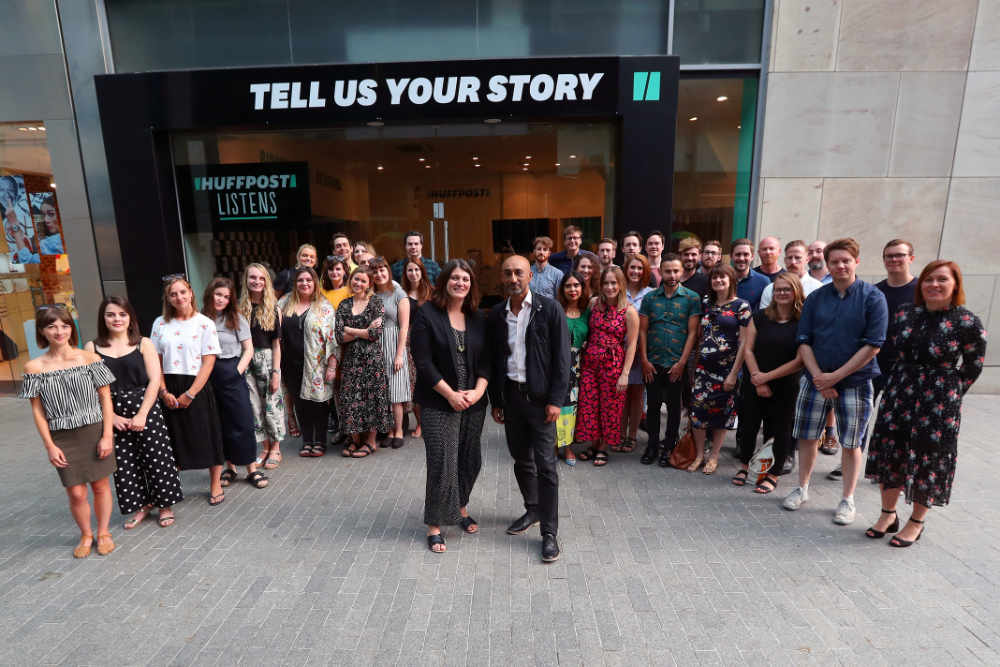Search results
74 results found.
74 results found.
74 results found.

The news agenda has changed dramatically since we started planning the online Newsrewired conference only a month ago. Lockdown seemed to have dominated every discussion, every news article and, in fairness, our every waking moment.
Looking to convince your manager to give you permission to attend Newsrewired? Copy/paste the message below, edit as appropriate, and send it to them. Dear {name}, I would like to attend the Newsrewired conference taking place on 27 November 2019 at Reuters in London, UK. Newsrewired is one of the best digital publishing conferences for […]

Mark Little, CEO of Kinzen, will be joining the panel on new ways to finance journalism in the digital age.
Kinzen is developing personal news routines that connect active news seekers and quality publishers. Mark will be sharing some of the lessons he’s learned and solutions Kinzen’s building for publishers seeking more valuable personal engagement with their users.

One of the reasons why the public increasingly mistrusts the media is that journalists are spending less time outside of their London offices, losing touch with what interests, inspires and bothers people outside the capital.

New year, new exciting speakers.
We are pleased to announce three industry experts will be joining our panels on sustainable ways to finance digital journalism, and producing content for voice-controlled devices:
Jessica Best, operations lead and engagement editor at The Correspondent; Dominic Young, founder, Agate; and Peter Stewart, journalist and author
The decline in advertising revenue was one of the major factors leading to the closure of many local newsrooms. Although the media industry is yet to find a sustainable model for financing local journalism in the digital age, a number of new initiatives suggest that adopting a new business model can help solve some of the challenges.
The digitally-savvy Generation Z, made up of 13-24 year olds, have never known life without smartphones. Snapping, swiping, liking and sharing is second nature to them, meaning news organisations must digitally adapt if they are to engage with younger people. As a result, The Telegraph has been producing mobile-first content on Snapchat Discover, sandwiching news […]
With just under a month to go until the next newsrewired digital journalism event, taking place on 11 July at Reuters, Journalism.co.uk is pleased to announce speakers from the Financial Times, The Economist and the Reuters Institute for the Study of Journalism will be joining us to discuss the latest trends and techniques in their newsrooms.
From creating a successful editorial newsletters strategy, to building communities on social media and understanding the value of constructive journalism, the programme for the day is packed with practical lessons that delegates can take back to their teams and implement at work the very next day.
What’s new?
• How Instagram became The Economist’s most engaging social platform;
• Podcasts: an emerging opportunity? Who listens and why?
• How the Financial Times approaches email newsletters.
Join speakers and delegates from the BBC, the Guardian, BuzzFeed News, Quartz, The Telegraph, NBC News Digital, ITN Productions, Apple, Swedish Radio, Sky News, and many more.
The world is awash with claims of fake news. Digital technologies have radically changed the way news is created and consumed. Social media allows misinformation to spread at lightning speed. Journalism is facing a crisis of trust in an era when reliable, impartial news is more important than ever. How should news providers respond?
In the keynote speech at newsrewired on 11 July, Reuters EMEA chief, Simon Robinson, will explain how the world’s largest international multimedia news provider is addressing these issues by focusing on robust reporting, maintaining independence, increasing transparency and, when they occur, correcting mistakes quickly. The media landscape may have changed dramatically, but the best modern journalism, he will argue, is rooted in old-fashioned reporting values.
Robinson is regional editor for Europe, Middle East and Africa at Reuters. He directs newsgathering and reporting in the region, and oversees budget, strategy, hiring, legal and security issues. Robinson joined the news service in 2010 and ran investigations and enterprise reporting in EMEA for six years, editing award winning series on Iran, Russia, corporate taxation, Greek banks and migration.
Simon edited two Pulitzer finalists, packages of stories on Libya and on Iraq. Between 1995 and 2010 he was a correspondent and then editor for Time magazine, reporting from more than 50 countries in Africa, South Asia, the Middle East and Europe. He has published short stories, and wrote and produced an award-winning satirical movie about aid workers and journalists in Africa.
The closing panel looks at the various ways in which news organisations have changed the way they work with their readers or involve them in the research or reporting process, from producing or peer-review stories, to fact-checking, investigating and engaging on social media. A session with: Lilah Raptopoulos, community editor, Financial Times Jessica Best, engagement editor, De Correspondent Sarah […]
